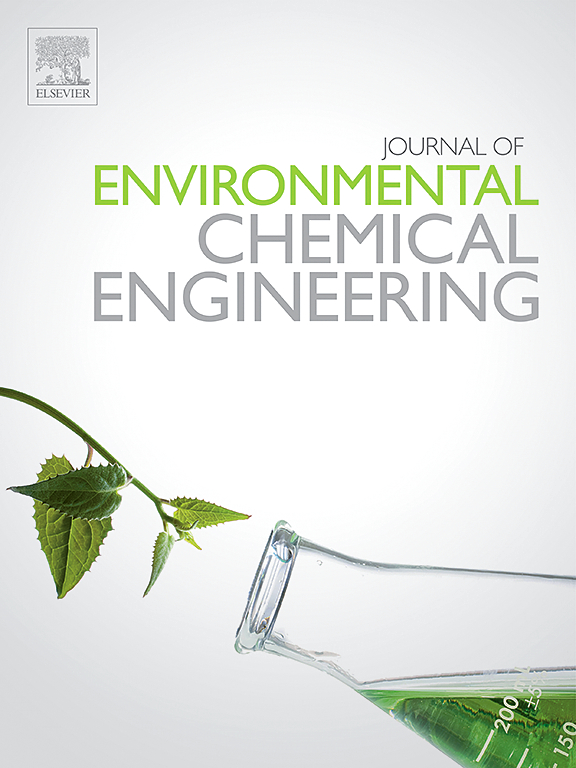Understanding urea polymorphism and cocrystallization to develop enhanced fertilizers: A review
IF 7.4
2区 工程技术
Q1 ENGINEERING, CHEMICAL
引用次数: 0
Abstract
Polymorphism and cocrystallization are two crucial processes in the development of new urea compounds. These processes primarily involve intermolecular interactions and the molecular arrangement within urea. Understanding polymorphism facilitates modification of the physical and chemical properties of urea compounds. Polymorphism refers to a compound's ability to exist in different forms or crystal structures. Urea exhibits five distinct polymorphic forms under specific temperature and pressure conditions and extensive research has been conducted on the unit cell parameters of different phases of urea. In the realm of urea cocrystal development, polymorphism plays a significant role. Urea cocrystals typically consist of urea molecules and one or more additional molecules, strategically chosen to modify urea's properties for broader applications. The preparation of cocrystals involves mixing pure urea with the chosen coformer under controlled atmospheric conditions. Cocrystal formation can be enhanced through the application of mechanical forces to the reactants, elevated temperatures, and specific relative humidities. The field of cocrystallization provides a powerful toolkit for crafting desirable urea compounds, making them well-suited for applications in agriculture and other industries. In pharmaceuticals, cocrystals with urea allow for the design of more effective and easily administered medications which can enhance drug delivery and absorption. In agriculture, urea cocrystals can optimize the release of nitrogen from urea fertilizers, improving nutrient uptake by plants, and reducing environmental impact. In addition, cocrystals often utilize industrial byproducts or waste materials as coformers to modify the properties of urea. Furthermore, preparing urea cocrystals using solvent-free mechanochemistry eliminates the need for solution handling and evaporation, promoting an environmentally sustainable process.
了解尿素的多态性和共晶化,以开发强化肥料:综述
多态性和共晶化是开发新尿素化合物的两个关键过程。这些过程主要涉及分子间的相互作用和尿素内部的分子排列。了解多态性有助于改变尿素化合物的物理和化学特性。多态性是指化合物以不同形式或晶体结构存在的能力。在特定的温度和压力条件下,尿素呈现出五种不同的多晶形态,人们对尿素不同相的单胞参数进行了广泛的研究。在尿素共晶体的开发领域,多晶型起着重要作用。尿素共晶体通常由尿素分子和一个或多个附加分子组成,这些分子经过战略性选择,可以改变尿素的特性,从而实现更广泛的应用。共晶体的制备包括在受控大气条件下将纯尿素与所选的共聚物混合。通过对反应物施加机械力、升高温度和特定的相对湿度,可促进共晶体的形成。共晶体领域为制造理想的尿素化合物提供了一个强大的工具包,使其非常适合应用于农业和其他行业。在制药领域,利用尿素共晶体可以设计出更有效、更易于服用的药物,从而促进药物的输送和吸收。在农业方面,尿素共晶体可以优化尿素肥料中氮的释放,提高植物对养分的吸收,减少对环境的影响。此外,球晶通常利用工业副产品或废料作为共聚物来改变尿素的性质。此外,使用无溶剂机械化学法制备尿素茧晶无需处理溶液和蒸发,促进了环境可持续发展过程。
本文章由计算机程序翻译,如有差异,请以英文原文为准。
求助全文
约1分钟内获得全文
求助全文
来源期刊

Journal of Environmental Chemical Engineering
Environmental Science-Pollution
CiteScore
11.40
自引率
6.50%
发文量
2017
审稿时长
27 days
期刊介绍:
The Journal of Environmental Chemical Engineering (JECE) serves as a platform for the dissemination of original and innovative research focusing on the advancement of environmentally-friendly, sustainable technologies. JECE emphasizes the transition towards a carbon-neutral circular economy and a self-sufficient bio-based economy. Topics covered include soil, water, wastewater, and air decontamination; pollution monitoring, prevention, and control; advanced analytics, sensors, impact and risk assessment methodologies in environmental chemical engineering; resource recovery (water, nutrients, materials, energy); industrial ecology; valorization of waste streams; waste management (including e-waste); climate-water-energy-food nexus; novel materials for environmental, chemical, and energy applications; sustainability and environmental safety; water digitalization, water data science, and machine learning; process integration and intensification; recent developments in green chemistry for synthesis, catalysis, and energy; and original research on contaminants of emerging concern, persistent chemicals, and priority substances, including microplastics, nanoplastics, nanomaterials, micropollutants, antimicrobial resistance genes, and emerging pathogens (viruses, bacteria, parasites) of environmental significance.
 求助内容:
求助内容: 应助结果提醒方式:
应助结果提醒方式:


